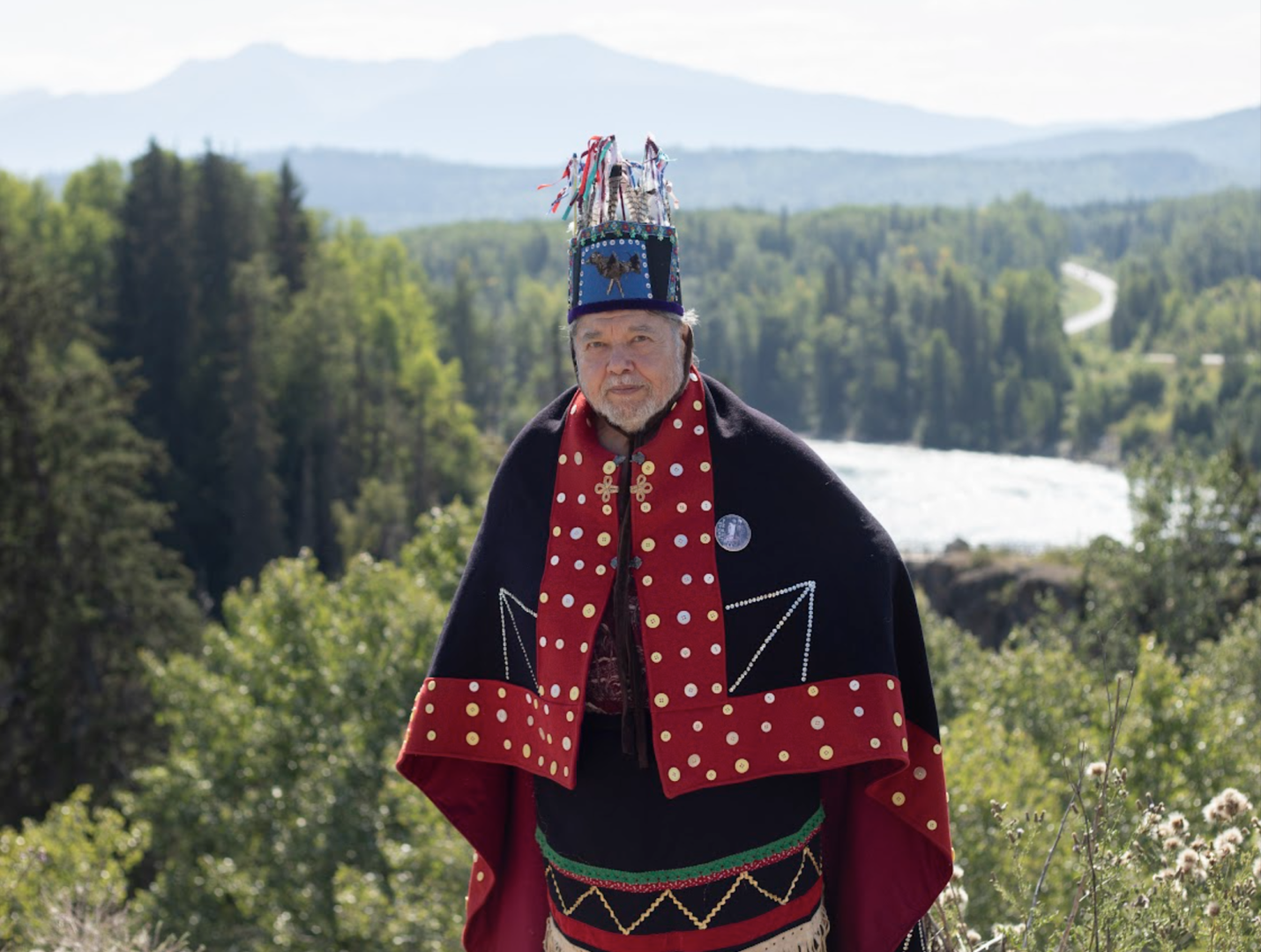The Wet’suwet’en village of Witset bustles on a hot August morning as locals cast their spears into the Bulkley River below the Morricetown canyon.
The salmon run this year is low. Still, Wet’suwe’ten people continue fishing in the hopes of catching a few to process, smoke, and can — a tradition integral to their way of life. However, Wet’suwet’en Likts’amisyu Clan Wing Chief Dsta’hyl, also known as Adam Gagnon, wasn’t able to partake this year.
Perched on a hill overlooking the canyon, he watches things unfold from his home, where he’s been held captive for most of his days since July 3 as he completes a sentence of 60 days house arrest.
“It was a blessing in disguise,” said Dsta’hyl, about not having to serve his time behind bars. Yet he remains defiant, and plans to appeal. “All of us have to start standing up. We must raise our children to start taking control of their own territories.”
In late July, Amnesty International took the extraordinary step in naming Dsta’hyl Canada’s first ever designated prisoner of conscience, and now demanding his immediate and unconditional release.
“The Canadian state has unjustly criminalized and confined Chief Dsta’hyl for defending the land and rights of the Wet’suwet’en people,” Amnesty International’s Ana Piquer stated in a press release. “As a result, Canada joins the shameful list of countries where prisoners of conscience remain under house arrest or behind bars.”
In October 2021, Dsta’hyl was arrested and charged with criminal contempt after confiscating and decommissioning heavy equipment utilized by Coastal GasLink to construct its LNG pipeline on unceded Wet’suwet’en territory. Dsta’hyl said he was enforcing Wet’suwet’en laws as the company did not have the free, prior and informed consent of hereditary chiefs to build the pipeline.



I found a YouTube link in your comment. Here are links to the same video on alternative frontends that protect your privacy: